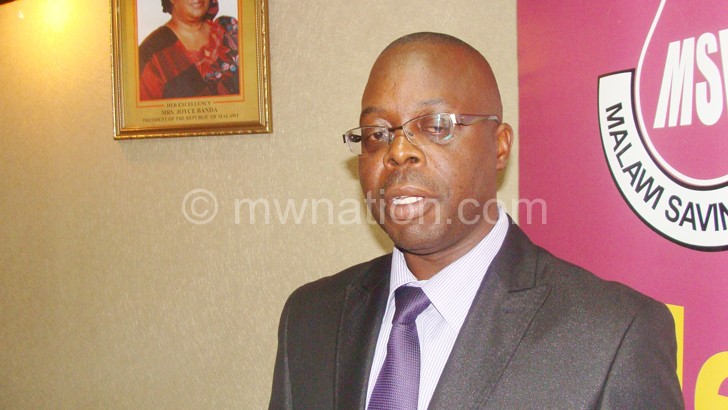‘There is a lot of work for Malawi to succeed’
Malawi has celebrated 52 years of independence amid a myriad of problems ranging from hunger, corruption, high levels of crime to nepotism. This year, government was forced to cancel Republic celebrations because the economy cannot afford a lavish party. JOSEPH MWALE talks to economist Edward Chilima to find out why after 52 years of self-rule there is still little economic progress in this country. Exerpts:

Q
What has gone wrong since 1964 for Malawi’s economy to continue nose-diving?
A
The view of most people, and I agree with them, is that the main causes of this non-performance of the economy are man-made. They vary from poor implementation of the agreed national vision such as Vision 2020 and other supporting agreed national strategies, to lack of focus. As a nation we seem not to have discovered what we are good at so we could invest as much resources as are available on that. As a result, we have attempted, with meagre resources, to try to do everything and sadly mastered none.
We have tried agriculture, but we could not sustain the growth due to poor investment in supporting structures. We are now at the mercy of nature. We have talked about tourism, but what have we done about it? Look at the supporting infrastructure? We have been talking about mining, but what can we show on this? Look at our education sector? The standards are compromised. Look at the health sector? In my view, I think we are trying to do too many things some of which are beyond us. With the minimal level of our finances, it is difficult to have any impact. I wish we focused on some vision, master it, invest in it, and become very competitive in it. At least be good at something.
Another reason we have failed to make progress is the type of politics we practice. The vision of most political parties has been short-term. This has led to uncoordinated and disjointed implementation of the national vision. It has been a world of survival of the fittest. Unfortunately, the set up of our political ground has been that leaders have been forced on focusing on strategies to win the next general election, hence, non implementation of long-term projects. In addition, the Malawi politics has promoted the culture of reliance on hand outs and free services, even to those that are capable.
Q
Private sector is the engine room of the economy. How would you rate the role of our private sector so far?
A
The private sector in this country has faced challenging economic and operating environment for prolonged periods. The general operating environment has been a stumbling block to performance of most private businesses. Macroeconomic instability, such as, unstable and high interest rates, exchange rates, inflation rates have been negative to operations.
It is difficult to plan in Malawi because of economic and political uncertainties. Related to the above point, because the national vision is not clear, private sector operations are also not clear. It is difficult for private sector [to develop] where priority areas are not clear and national agendas change very often. Government operations also have not been that supportive. For instance, the procurement processes have not been progressive over the years. Debt management has been an issue, affecting the financial sector. But also government debt repayment record has not been positive thereby affecting cash flows of some government suppliers. The private sector has not performed to its fullest potential.
Q
We have been failing to attract foreign-direct investment (FDI), but recently government turned to investment forums to woo investors, do you see us succeeding?
A
The forums are a positive development. However, the results are not to our expectation. But we all can understand why. There is still a lot of work to be done on our part for the investors to find Malawi an attractive country to invest compared to other investment destinations. In short, the business environment is still a challenge for any serious investor.
Q
Malawi is the second largest tea producer and exporter in Africa after Kenya. Tea ranks third in terms of export value after tobacco and sugar. How best can Malawi manage these crops to boost the economy?
A
I would not focus on these crops as their markets and structures are already established for these crops. But I would rather suggest that we equally invest in crops that we have underdeveloped and yet have huge export market. We have unsatisfied export demand for crops such as soya, cotton, groundnuts, paprika, and maize. We know this. Let us develop their structures.
Q
Moving forward, what school of thought should Malawi follow for the economy to grow?
A
We need to make the hard decisions which we should have made many years ago. Expenditure on consumption will not take this country very far. It may be politically correct but it is not developmental. It is unsustainable. We should make the hard decision of graduating from poverty reduction programmes to developmental programmes. If we continue being haunted by the fear of poverty and consumption, then we will continue wasting time and resources on consumption and other social programmes at the expense of development. The good thing is that if we invest our resources in development programmes—and less on consumption programmes— in the long-run the resultant developments will pay back by addressing the poverty issues. But we must accept that this is a sacrifice in the short term for the sake of the long-run.





